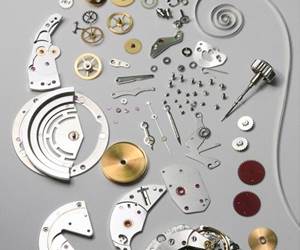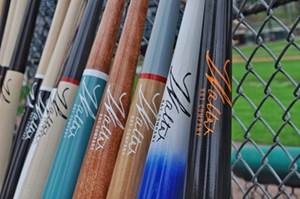Process Control in the Medical Shop
For this shop, successful delivery of medical and dental components is about proper process and machine tools that can handle the job.
The journey into medical machining sometimes can be a little intimidating for a shop. But it doesn’t have to be. With sufficient attention to detail, personnel with the right attitude and quality equipment, medical work can become as routine as any other job.
Pacific Precision Inc., a precision job shop in La Verne, California, specializes in Swiss-type components for various industries. While the company does a fair amount of aerospace work and other general components, about 65 percent of the parts it produces are for orthopedic surgical, dental and orthodontic applications. The company has been producing these types of parts for 35 years and has a firm grasp on what it takes to be successful.
Into Focus
Pacific Precision was founded in 1981 and has a 21,000-square-foot facility about a half hour east of Los Angeles. With about 40 employees, the company runs two shifts, handling various quantities of small parts (lot sizes ranging from as small as 25 to as large as 50,000). Cycle times generally run between 30 seconds and 4 minutes, dependent on part complexity.
The medical parts that the company produces are not necessarily any more or less complex than the others. The goal is usually to make them complete in one setup. The company employs 15 Citizen Swiss machines (that run the majority of the medical parts), along with an assortment of other CNC lathes, vertical machining centers, a wire EDM and other secondary processing equipment.
One thing that is commonly associated with medical machining is the significance of parts cleaning and sterile operations, often involving sanitary part handling within a cleanroom environment. Pacific Precision does not need to deal with these conditions for the parts it runs. While the shop floor is noticeably clean, and the company makes a concerted effort to keep it that way, parts cleaning operations are very basic. Some customers provide specific instructions regarding how to clean their parts, but without any elaborate cleaning equipment, the deburring department is able to handle the extent of what cleaning is required. Further cleaning often takes place at the companies that do the finishing operations such as surface treatments of the parts.
Even without specific cleanroom requirements, the company is required by almost all of its customers to carry certain certifications relating to part quality and process standards.
Certification Matters
Currently, Pacific Precision is certified ISO 9001:2008, ISO 13485:2003 and EN ISO 13485:2012. The first of these requires that a shop has a quality management system in place with the ability to demonstrate that it consistently provides a product that meets both customer and legal requirements. It also aims to enhance customer satisfaction by incorporating processes for continuous improvement.
ISO 13485 is similar, but is geared specifically toward medical devices and related services. It includes particular requirements for medical applications while excluding some from ISO 9001. So while there is overlap of these two certifications, either can be held without the other.
The certification process requires a significant commitment from the shop. Company President Tom Phillips says, “Some companies simply choose to adhere to the standards, but at Pacific Precision, we fully embrace the value and benefits of using these standards as a catalyst to process improvement.” Pacific Precision has assembled a committee (involving some management and shopfloor personnel) that meets regularly to be sure all processes are being followed appropriately. One individual in the company is responsible for all of the document control, making sure documents are in order, distributed properly to where they need to be, and tracked for easy and accurate reference. It’s mostly about establishing and maintaining a strict process that is followed every time by every individual in the company.
Alva Smith, quality director, explains that certifications are reviewed periodically by an outside auditing firm. “Annually, the auditor visits the company to review our 3-tier quality system for compliance to the ISO standards and for shop-wide adherence to our quality system,” he says. The three tiers consist of the quality manual, the standard operating procedures, and work instructions. Every third year, this review goes far more in depth. Any nonconformity that is found is categorized as either minor or major. Minor nonconformities are flagged so they can be corrected before they become large. These need to be fixed within 90 days. Major nonconformities are immediate issues and need to be corrected within 30 days. The company is then required to submit proof that the issues have been resolved within the allotted amount of time in order to renew certification.
According to Erica Lopez, office manager and human resources specialist, Pacific Precision has not been flagged with many findings through the years. Two recent minor findings were directed toward training, and the company has since ramped up training practices to ensure personnel are following protocol appropriately.
Mr. Phillips points out that these standards need to be and have been established as part of the culture within the company. “We are making parts that involve surgical procedures and also components that are implantable into the body,” he says. “We stress that with our employees. When we hire, we have an awareness statement each employee must sign stating that they understand the potential harm to others if parts are made incorrectly. We have a huge obligation to make sure every employee is paying close attention to the process, the materials we are using and the quality standards we must maintain.” As part of this effort, the company relies heavily on its skilled labor and the continuous training efforts it has in place to keep shopfloor personnel abreast of process changes and advances in technology and equipment.
Continuous Improvement
The goal at Pacific Precision is to exceed ISO and other industry standards based on experience and continuous improvement. They strive to standardize processes to ensure repeatability throughout the manufacture of quality components. “It’s about the process, not the person,” Mr. Phillips says. The quality assurance processes go beyond the basic device master record (DMR). Much of this effort is through a focus on lean manufacturing and teamwork.
“If you can’t or won’t work within a team environment, then things will fall through the cracks,” Ms. Lopez says. The company has teamwork meetings every month during which any needs are discussed, whether relating to tooling, equipment, supplies or even improved processes. Employees are also encouraged to learn about the parts they are involved in producing. The idea is that if they know more about the customers and how the parts are going to be used, they will have more of a feeling of responsibility to deliver what is needed in terms of quality and timeliness. The significance of these matters is carried through to annual employee reviews, indicating the significance the company puts on customer relationships.
Getting good results from employees starts with the hiring process. Pacific Precision has a constant word out for new machinists. It uses two employment agencies that focus on machine shops and also utilizes the NTMA. If a solid Swiss operator becomes available, the company has a good chance of knowing and is likely to make an offer. A committee is also in place to evaluate existing personnel, look for opportunities to promote from within and appraise the progress of new hires. Pacific Precision often hires those with limited experience to train and groom them from within. Mr. Phillips calls this the company’s “farm system” and says it builds an environment of skilled individuals and family-like loyalty.
To get the most of the employees, though, the company does a lot of cross-training. Another committee is focused on refining training programs to help employees develop their skills and become more valuable. The goal is for the majority of individuals to be capable of advanced setups and to become familiar with the programming process. Since the most recent certification audit flagged the training process, the company has been taking extensive steps toward helping employees learn more jobs throughout the shop floor.
But where else can a company find employees who fit the culture? Pacific Precision has gone through a local community college. Not a lot of schools in the area offer machine shop experience, at least not inexpensively. The community college students that the company has hired have been a great fit, with appropriate hands-on experience and an eagerness to further develop their skills.
Making Parts
Lights-out operations have been a significant part of the production process at Pacific Precision for a long time. The second shift is lightly manned, and parts continue to run into the third shift, totally untended. To make this method of operation successful, the company has assembled a committee of shop and QA personnel to evaluate what parts can run lights out.
While this determination used to require a bit of guesswork and trial and error, the committee now has a checklist that helps to identify if a part is suitable. It looks at part quantities, cycle times, part complexity, inspection requirements and materials used. The machine must be able to run for a minimum of 3 hours on its own, which must be proven in a manned environment, including part quality checks, before the part qualifies for lights-out production. If a part is set up for lights-out, it doesn’t necessarily need to run all night. The operator sets a part counter for it to run for a specific number of parts, whether it’s to complete the job or until the material runs out.
Not only is material quantity important, but quality as well. Sometimes flaws in the materials, such as bending and warping, can cause issues. Operators are responsible for checking the materials as well as coolant supply and overall machine status for final confirmation that it is ready to go.
Mario Alvarez, shop foreman, says the Citizen Swiss machines, equipped with high-pressure coolant and fire suppression systems, are a great fit for lights-out machining. “As long as the setups are done properly and everything is checked, the jobs almost always run flawlessly through the night,” he says.
Almost all of the medical parts are run on the Citizens, but if those machines are backed up and a part needs to get out, sometimes a portion of the work can be moved to the other machines. This typically requires multiple setups, though, as the parts are moved from lathes to mills. The Citizens can produce the parts much faster when they are available. The company started bringing in Citizens almost 20 years ago, and the machines have provided substantial production improvements.
Diving In
Mr. Smith says if a shop is interested in medical work, it should be aware of the quality requirements and be prepared to stay on top of the technology that is available to meet those demands. He feels that modernization has been a key component in allowing Pacific Precision to maintain its status in medical manufacturing. As a second-generation shop, people at the company understand what it’s like to start small and take on new challenges.
“At some point you need to grow and make sure you’re staying on the same level as the rest of the industry,” Mr. Smith says. As in any industry, medical customers are always looking to get more for less, so shops need to steadily improve their equipment and processes to be able to deliver it. But these changes help to modernize a shop and set it up to better handle other challenges as they come.
— Marubeni Citizen-Cincom Inc.
Related Content
Keeping Watch on Small Parts
From watch parts to exotic medical applications, this shop takes on the world of micromachining.
Read MoreVideo: Why a Production Machine Shop Started a Baseball Bat Company
A 153-year-old manufacturer of precision, metal pins recently started a side business creating custom wooden baseball bats. The reasoning behind establishing this new company is intriguing, as is how it has helped create a stronger bond with the local community.
Read MoreGetting More Production From Swiss Turning Centers
Buying a new CNC Swiss turning center is a substantial investment. For the best return, look closely for capabilities that enable the best utilization of the machine.
Read MoreCAM-Driven Lathe Questions
There can be hidden issues using legacy cam-driven lathes that can be overcome using new CNC technology. Here are three to keep in mind.
Read MoreRead Next
Medical Machining is in the Genes
Sometimes it’s difficult to stay away. This company is an example of a precision machining family that simply can’t stop doing what it does.
Read MoreDo You Have Single Points of Failure?
Plans need to be in place before a catastrophic event occurs.
Read MoreA Tooling Workshop Worth a Visit
Marubeni Citizen-Cincom’s tooling and accessory workshop offers a chance to learn more about ancillary devices that can boost machining efficiency and capability.
Read More


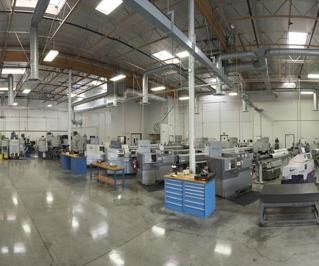
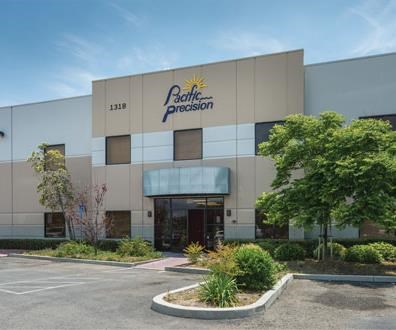
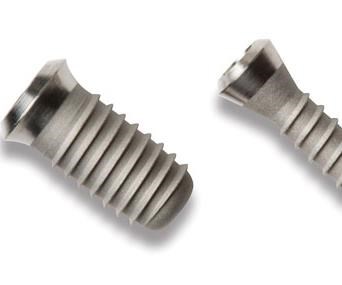
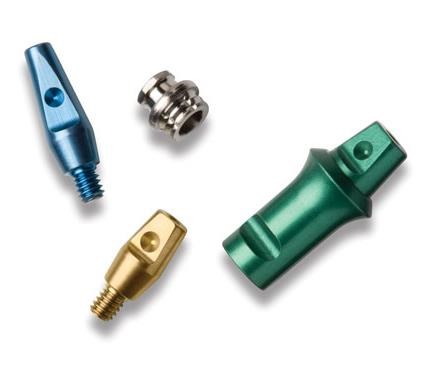
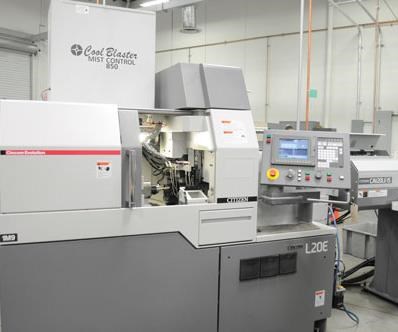
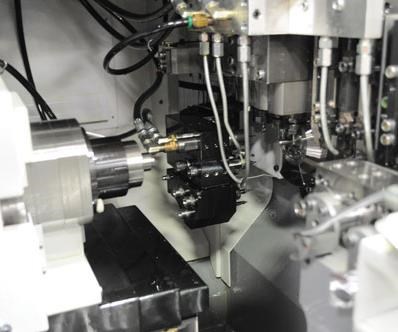







.jpg;maxWidth=300;quality=90)


.jpg;maxWidth=300;quality=90)


